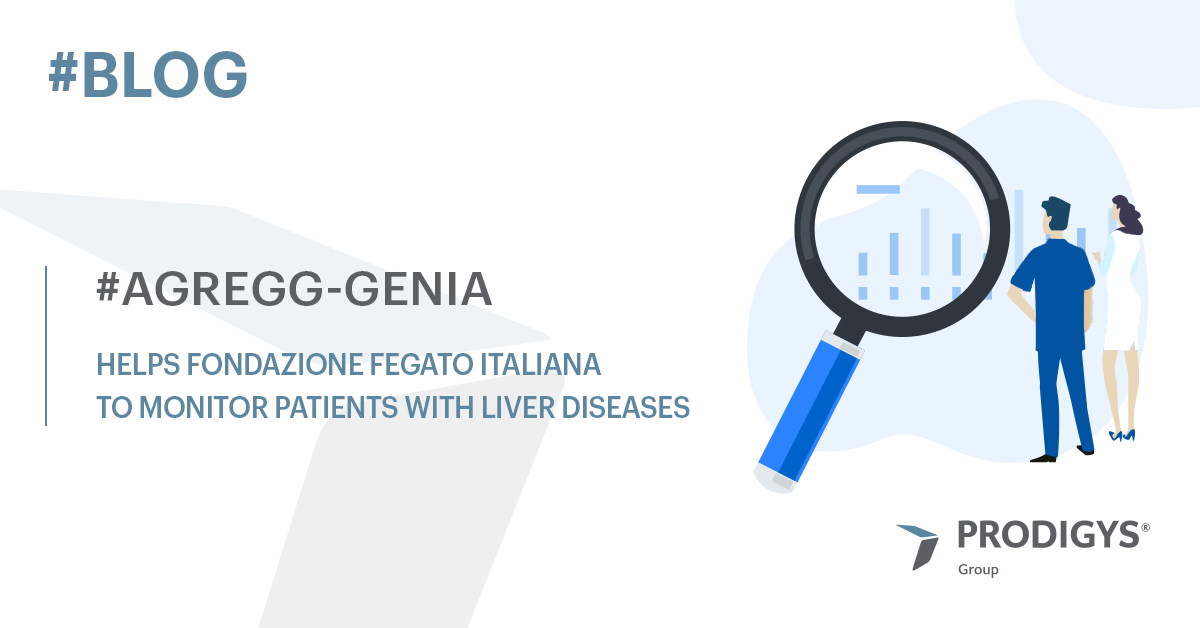
AgrEGG GenIA – Monitoring Patients with Liver Diseases
- Posted by agrAdminEGG
- On February 22, 2021
Introduction
AgrEgg GenIA is a Business Intelligence tool dedicated to the analysis of clinical and research data. In today’s article we will observe how this tool is being used for monitoring patients with liver diseases.
In order to train our machine learning model, we first collected a considerable amount of data from hospitalized patients. With that, a dataset is created and will then be analyzed by our team in a pre-processing phase. The aim of this phase is to prepare and consolidate the data in order to feed it to our algorithms. Using these sources, we created a tool that can both classify and cluster new patient records. Ultimately, you will have a 360-degree view of your patients’ clinical conditions, also in relation to other sets of data. If our tool identifies a pathology, using our graphs, we can get a better idea of the patient conditions. At that point, their blood values alone could tell us if they are at risk of developing more critical pathologies.
As a matter of fact, doctors have to check hundreds of patients daily, each with their own clinical data. This often comes from different exams and all of them need to be carefully considered. That is why our tool can offer the best solution to a long-lasting problem in healthcare: lack of time! Doctors will monitor a large number of clinical data and prevent the onset (or worsening) of a pathology in no time.
Monitoring Patients with Liver Diseases
A prototype of our application has been realized for the Fondazione Italiana Fegato (FIF), with the objective of monitoring patients with liver diseases at different stages (healthy>hepatitis>cirrhosis). Using GenIA, we classified with high accuracy their patients and we could estimate the risk of worsening of their disease.
Let us give you a practical example; the patient Mario Rossi is diagnosed with hepatitis and we have his last blood test results stored in the database. If after new lab tests his values change, the system will recalculate his medical condition. If he is at risk of developing cirrhosis, a pop-up will warn the doctor that further investigation is required.
Case-Study: Fondazione Italiana Fegato
In the first phase of testing, our data analysts worked together with FIF’s scientists to identify the main parameters that are involved in the diagnosis process. We were able to identify 10 parameters that can be monitored with a blood test. We then proceeded with the compression of information using machine learning algorithms and we created of a classification model based on neural networking.
Even though the dataset only had a few entries in the initial stage, we obtained very promising results. The prediction accuracy was around 86% and we could also calculate the probability of disease evolution in the patient (healthy>hepatitis>cirrhosis). Our tool proved to be extremely effective and very flexible: the parameters can be changed, readjusted or implemented using gene expressions or other clinical evidences.
Thanks to the flexibility of our tool, we can enable scientists to investigate in several areas. They can monitor various aspects of the patient’s clinical condition and, at the same time, create the appropriate clinical plan. In order to create a tool that is efficient, but also easy to use and consult, we crafted a series of intuitive dashboards supported by data and graphs. This way, doctors can check patients’ symptoms and vital parameters whilst comparing them to past cases and quickly validate their choices.
Our Mission and our Partners
Wrong diagnoses and treatments can harm the patient, but not everybody knows that they are detrimental for hospitals as well. For example, prolonged hospitalization results in higher costs for the structure. Our purpose to ensure high standards in medical practices, will serve the healthcare sector as a whole. GenIA can prevent the risk of wrong diagnoses and treatments, improving the overall quality of the clinical service and reducing the costs related to medical errors.
Prodigys’ team will keep on working on this tool to refine the algorithms and to enhance its performance. For this reason, we are collaborating closely with Fondazione Italiana Fegato and Gartner. Together with FIF, we are working on identifying even more parameters to add to the diagnostic panel and to improve the health predictions of disease evolution in patients. Thanks to the experience of Gartner analysists, instead, we are working on upgrading and enhancing our tool from a technical point of view.
At the end of the testing phase, the bioinformatics department of Fondazione Italiana Fegato will be launched with our analysists in the team. This complementary knowledge will break new ground, complementing scientific research with IT, and especially Machine Learning, expertise.
Why AgrEGG GenIA?
Thanks to and our team, you will have a tool that can easily analyze, handle, and represent your data. With AgrEGG-GenIA, Business Intelligence will revolutionize the field of research. Use the dashboards to monitor your patents and find a better cure for their pathology.
Make the most of the data you have and enter the world of Business Intelligence with the best product. Get in touch today. Choose smart, choose AgrEGG.


0 comments on AgrEGG GenIA – Monitoring Patients with Liver Diseases